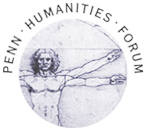
|
The Penn Humanities Forum continues its multidisciplinary explorations in 2004-2005 with "Sleep and Dreams," a program of lectures and performances focusing on the Land of Nod. Sleep and Dreams by Hans P.A. Van Dongen, and Wendy Steiner
Despite the large amount of time we spend asleep, surprisingly little is known about sleeping and dreaming. Much has been imagined, however. Over history, sleep has been conceived as the space of the soul, a state of absence akin to death, a virtual or alternate reality, or a form of (sub)consciousness in which memories are built and erased. The Ancient Greeks had dream encounters with their gods, Native Americans used dreams for guidance in life, and shamans dreamed in order to gather information from the spirit world. But the border between waking and sleeping life has never been easily breached, and the two realms remain disquietingly disjoint. Perhaps because of their mystery, sleep and dreams have exerted a strange power over conscious life, symbolizing whole eras and ideologies. Sigmund Freud's interpretation of dreams revolutionized twentieth-century thought. Genius is traditionally allied with short sleeping and insomnia: Thomas Edison's light bulb might never have lit up if he had not been so resistant to shut-eye. When Benjamin Franklin counseled, "Early to bed, early to rise, makes a man healthy, wealthy, and wise," he was using sleep habits to tout the virtues of his pragmatism. Contemporary scientific research takes a different view of sloth, however, demonstrating that getting up early improves relatively few people's health or productivity. Important public policy issues have arisen in our 24-hour society, where it is crucial to weigh the value of sleep versus wakefulness. Political and academic debates rage about how much and when people should sleep. These issues affect almost everybody, from the shift worker to the international traveler, from the physician to the policy maker, from the anthropologist to the student preparing for an exam. The expectation is that science can provide the knowledge to resolve these questions. However, researchers still do not understand the function of sleep and dreams. Whereas artists and humanists have long been concerned with these states, the sciences mostly ignored them until the discovery that the brain is active during sleep. It has now been documented that sleep is a necessity for health, well-being, creativity, and clear thinking, though there is no consensus as to why this should be so. Much has been learned about the neurobiological underpinnings of sleep and dreams, but the reasons for these processes are still a mystery. Under the circumstances, scientists and humanists might profitably collaborate on an exploration of these fundamental aspects of life. Accordingly, the Penn Humanities Forum has chosen "Sleep and Dreams" as its 2004-2005 topic. The theme highlights Penn's vibrant biomedical sleep research and the humanistic projects of the Forum's Mellon Postdoctoral Fellows and the students involved in the Graduate Humanities Forum and the Undergraduate Humanities Forum. This year's public events cover everything from astronaut sleep to surrealism in the arts, the physiology of sleep, sleep spaces and places, workplace productivity, legal competence in sleep states, dreams in fairy tales and film, literary automatism, and the music of dreams. Through this diversity of approaches and opinions, we hope that the 2004-2005 Penn Humanities Forum will cast light on important questions about sleep and dreaming—questions that touch on the basis of human intellect and quality of life. Dr. Hans P.A. Van Dongen, Research Associate Professor of Sleep and Chronobiology, is the Penn Humanities Forum topic director for 2004-2005. Dr. Wendy Steiner is the Richard L. Fisher Professor of English and founding director of the PHF. For more information about the Penn Humanities Forum, see http://humanities.sas.upenn.edu.
Almanac, Vol. 51, No. 3, September 14, 2004 |
ISSUE HIGHLIGHTS: Tuesday,
September 14, 2004 Volume 51 Number 3 www.upenn.edu/almanac |
